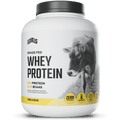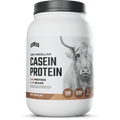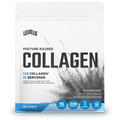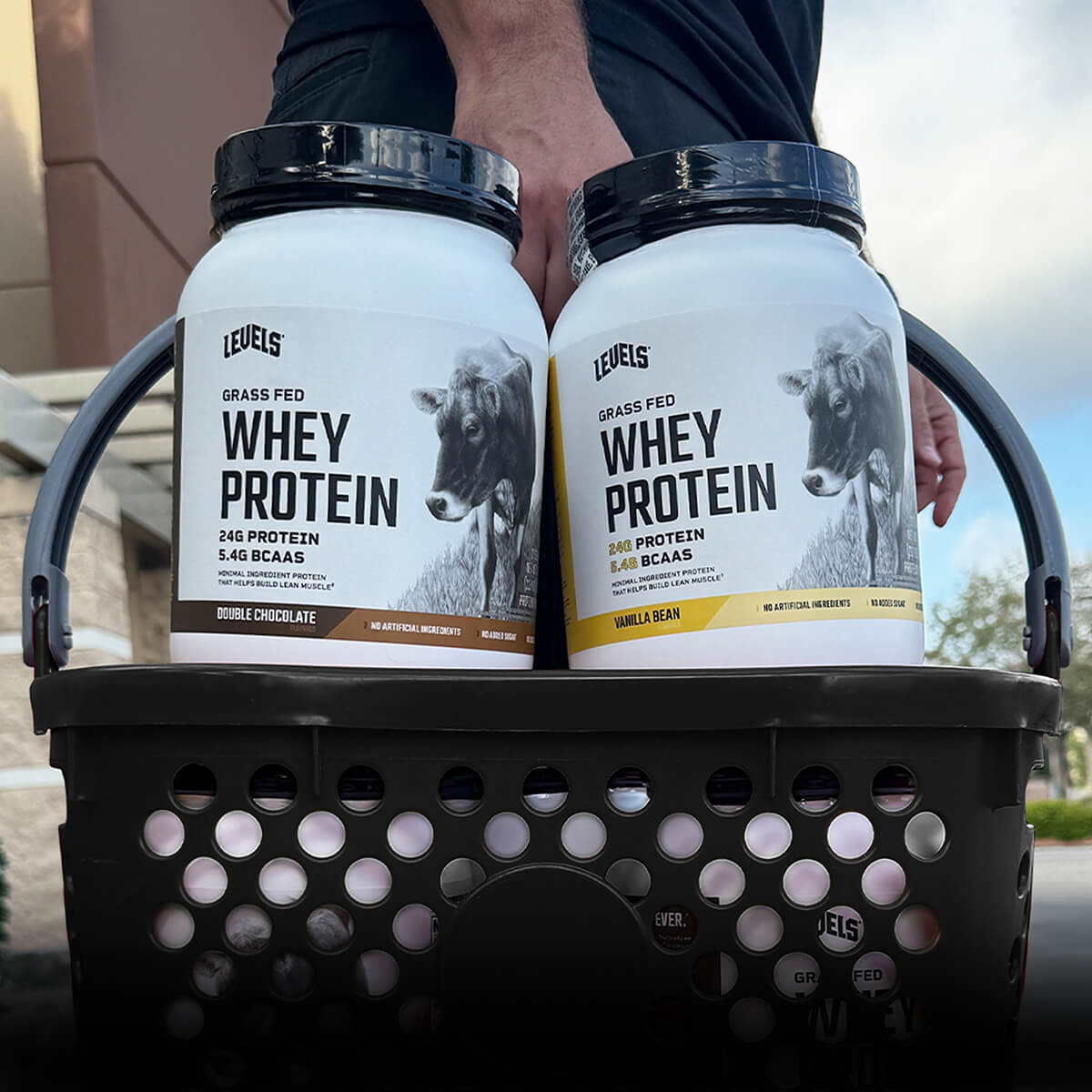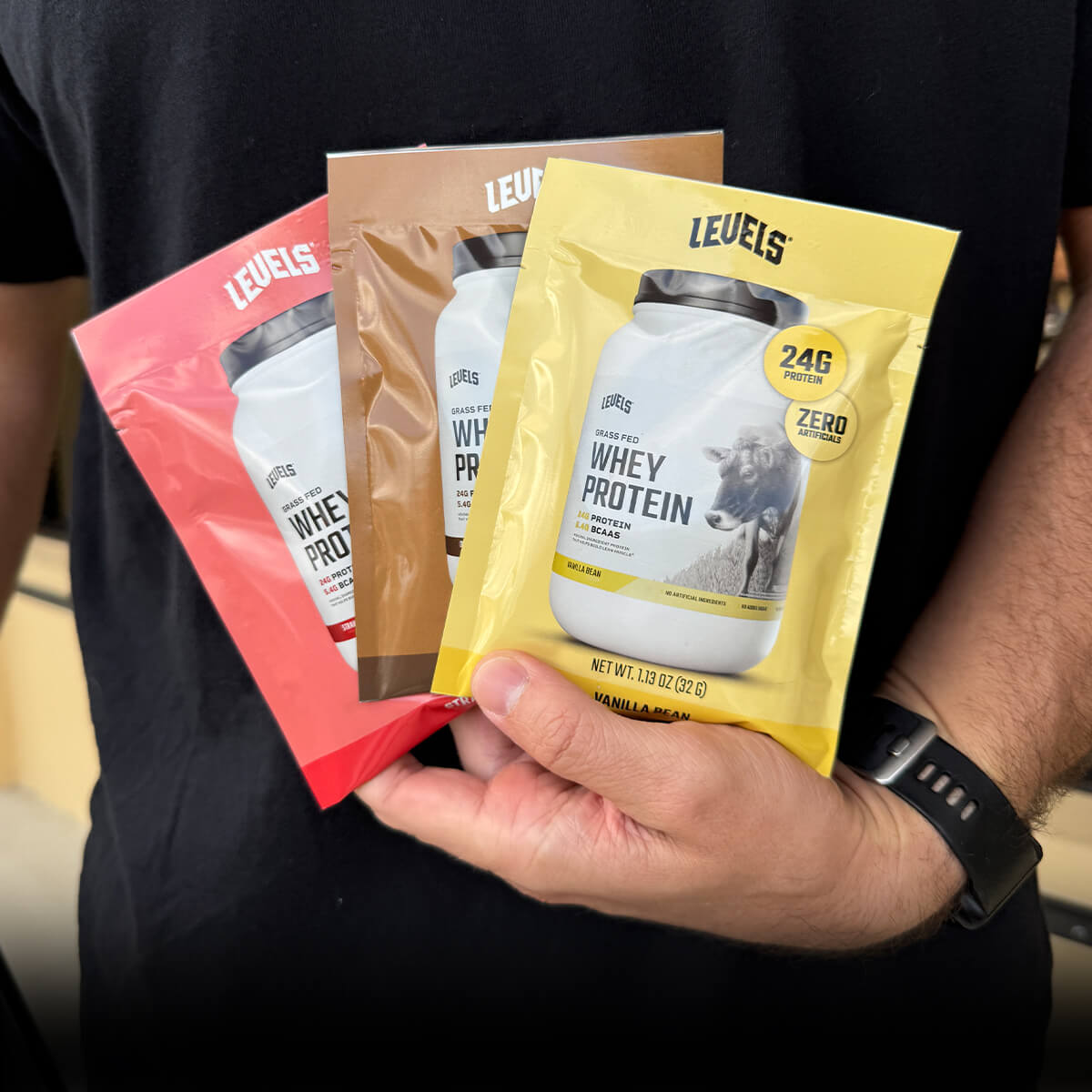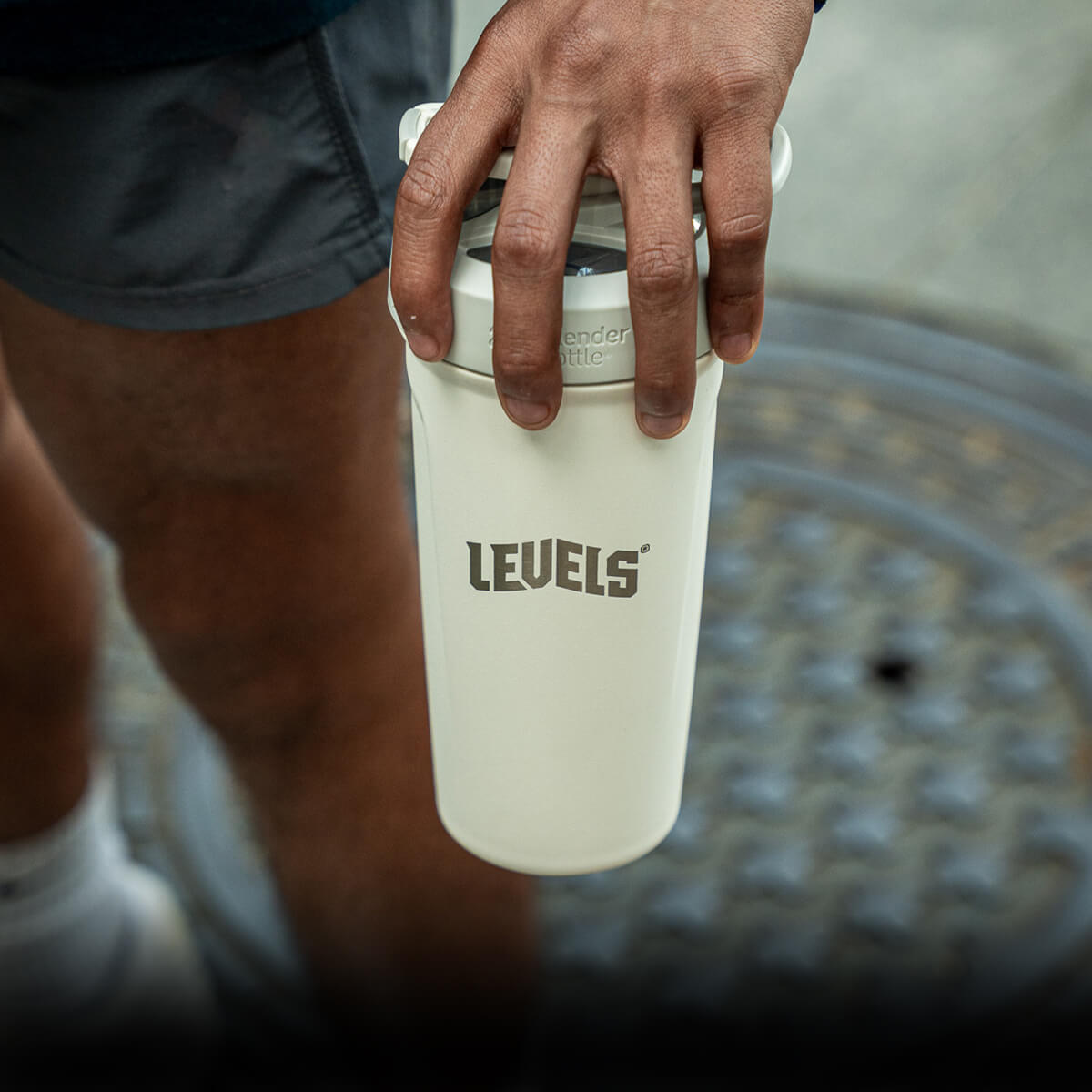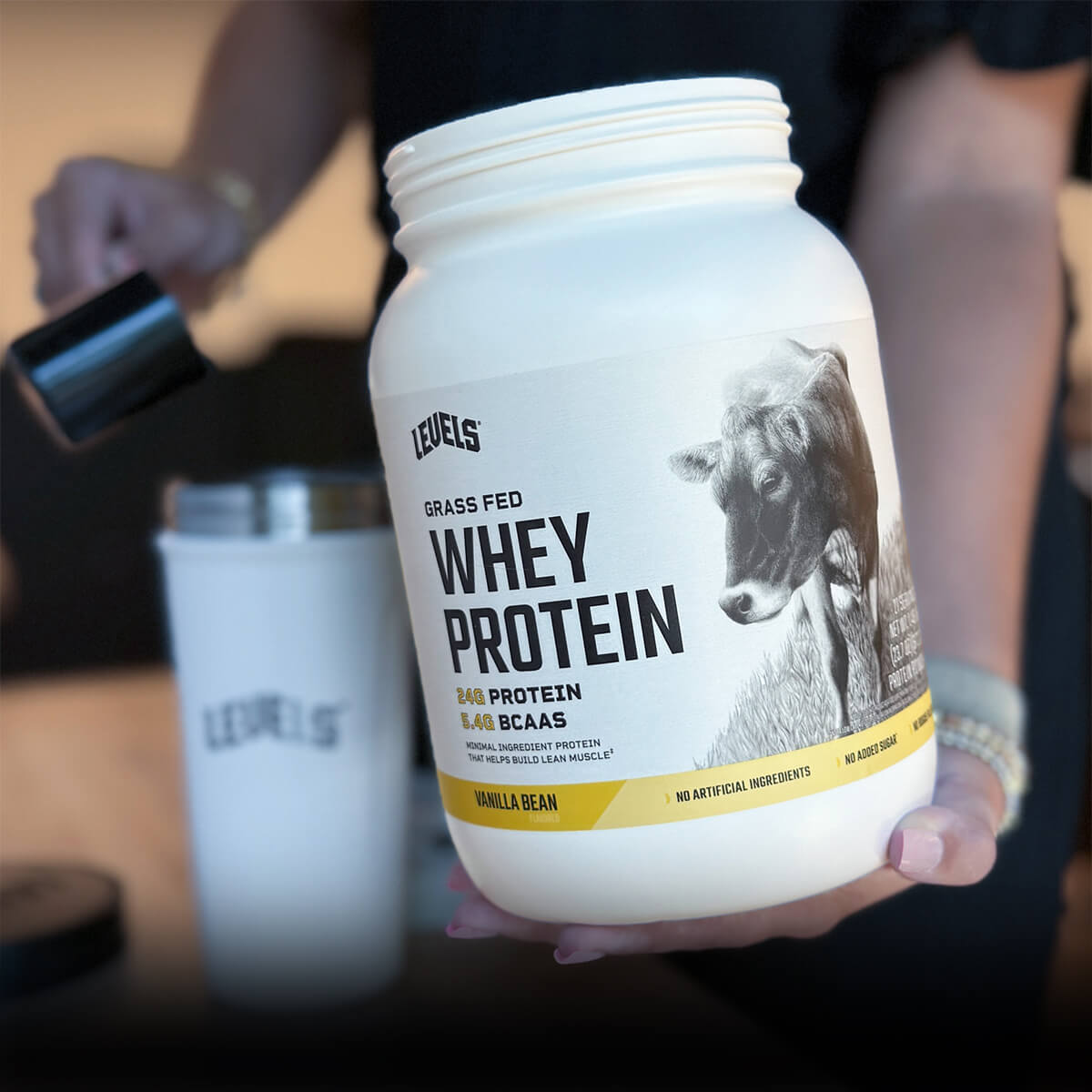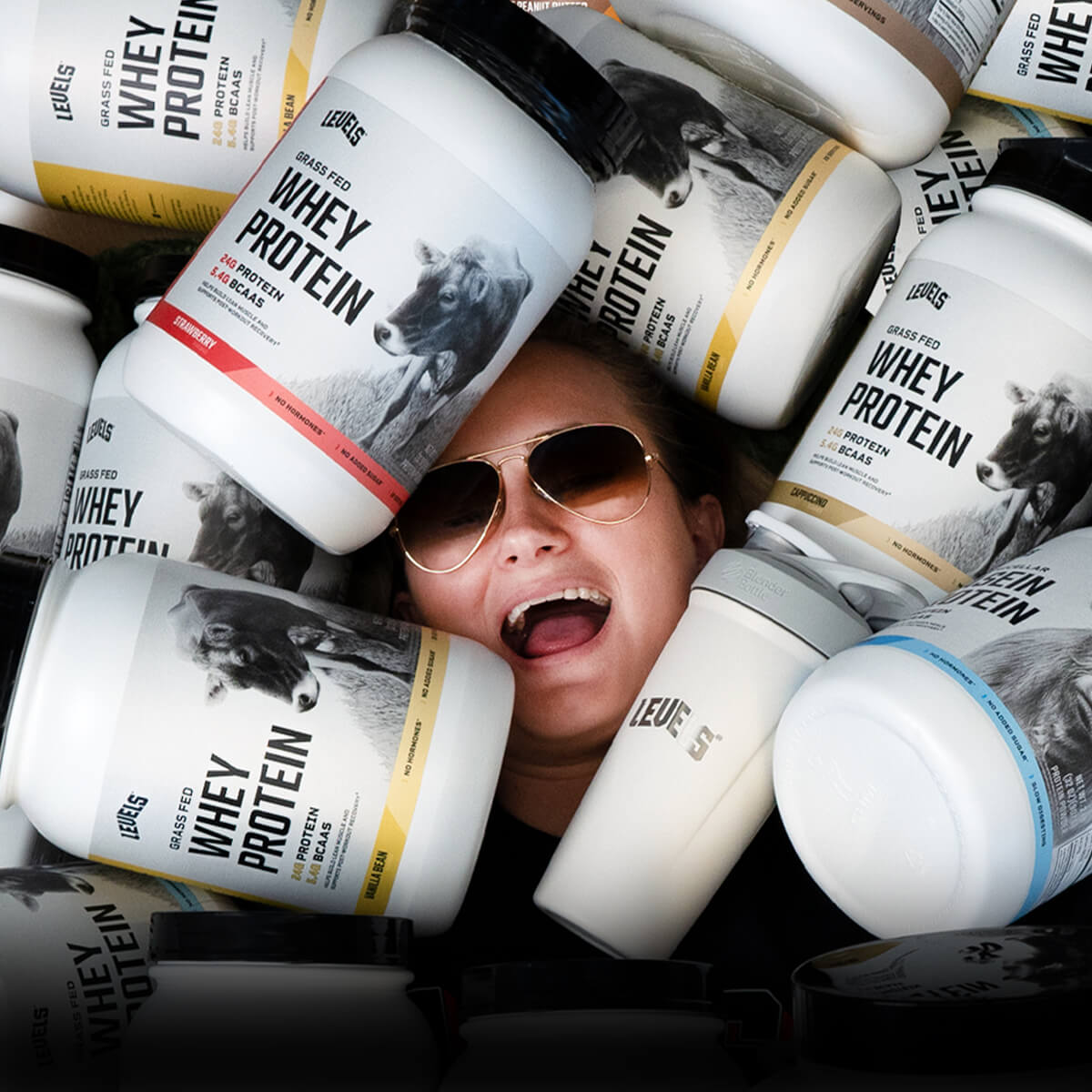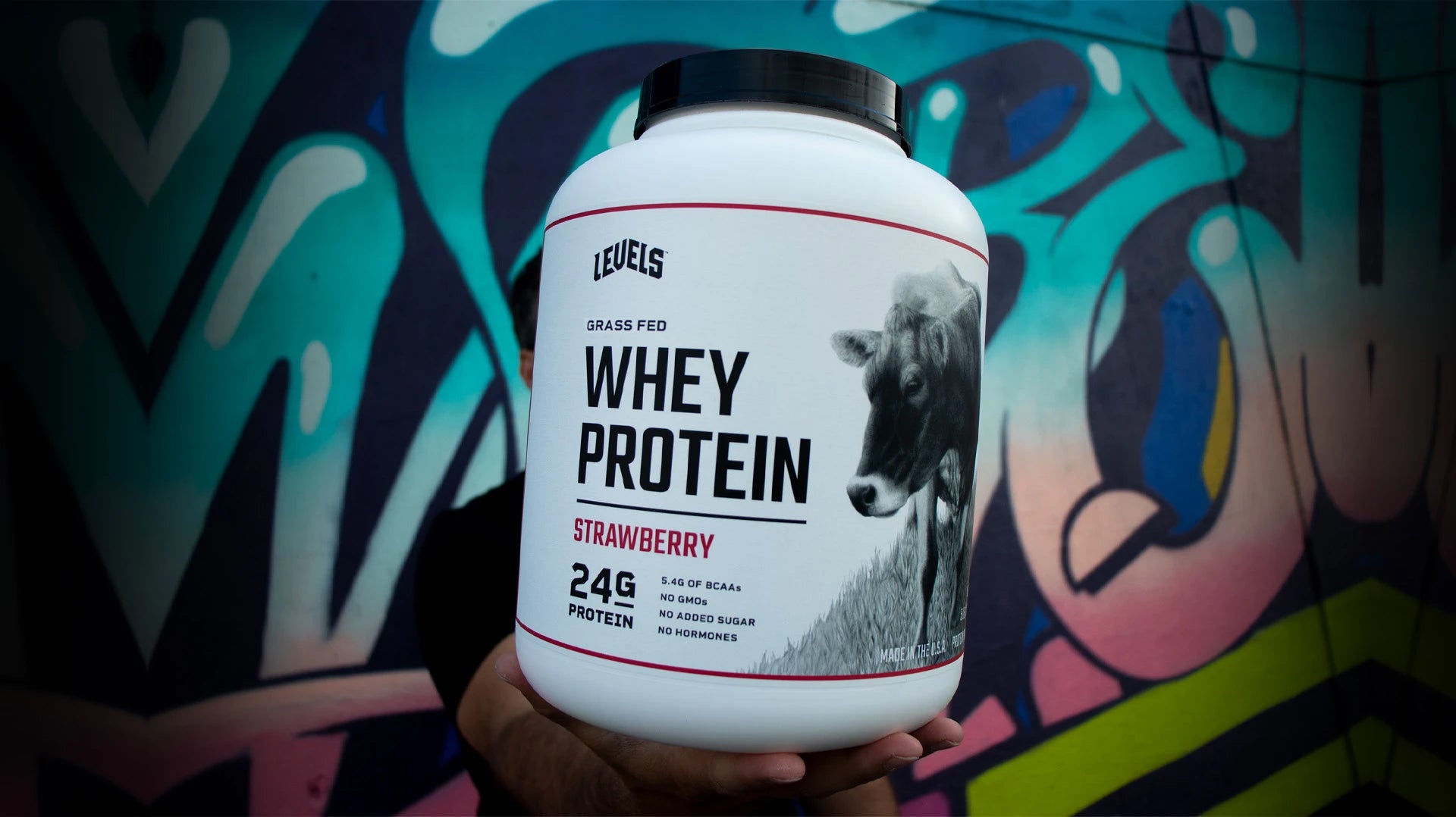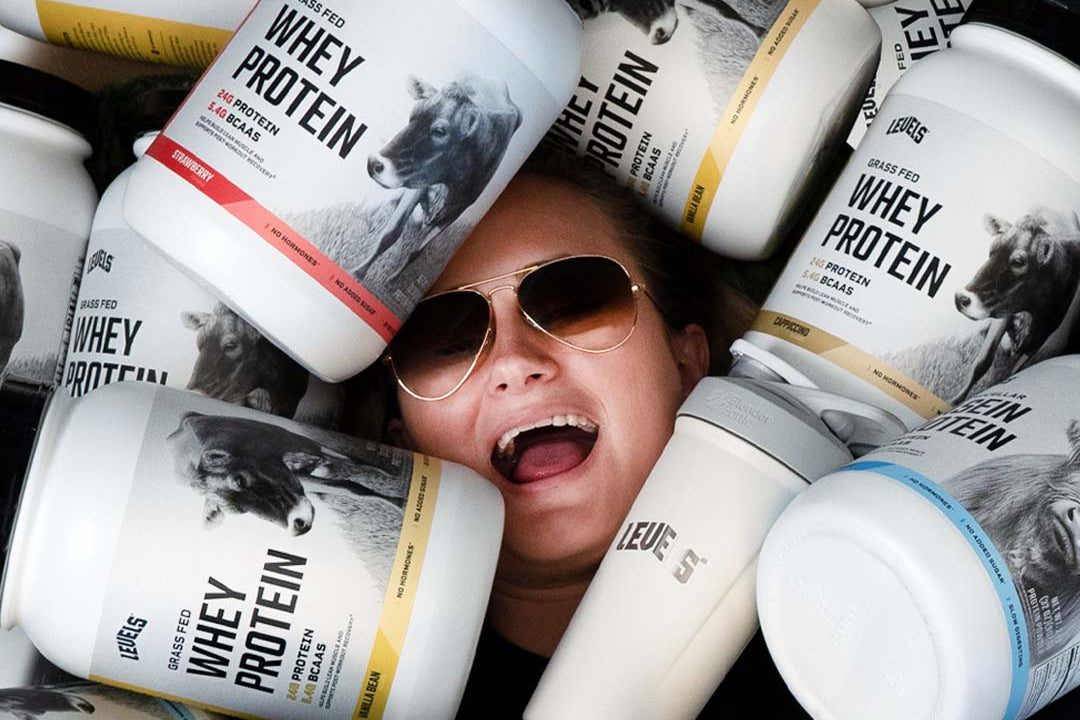According to the United States Institute of Medicine, the recommended daily allowance (RDA) for protein is 56 grams per day for adult men and 46 grams per day for adult women[*].
However, these nutritional guidelines are designed to prevent starvation, not for building muscle.
If you’re a physically active person, scientific research shows that your minimum protein intake requirements could be more than double the official guidelines[*].
Along with eating enough calories and training regularly, consuming plenty of protein is one of the most important things you can do to gain muscle.
And as you’ll learn in this guide, protein quality counts, too.
Keep reading to learn how to calculate your optimal protein intake for building muscle (with practical examples), how much protein to eat at each meal, how much protein is too much, and more.
How Much Protein Per Day Do I Need to Build Muscle?
There are two ways to calculate your daily protein intake for muscle-building:
- Eat 1-1.4 grams of protein per day per pound of body weight, or
- Consume 25-35% of your total daily calories from protein
Both methods work well, and both are backed by scientific research (more on that in a moment).
The first way is simpler and easier if you don’t count calories, because you can just count daily protein without thinking about calories at all.
But the second method can be helpful because it adjusts your protein intake to your goal–it takes into account eating fewer calories to lose weight, or more calories to bulk up.
And now, here’s what the research says about daily protein intake and building lean muscle.
According to a 2018 review of both short- and long-term protein intake studies, a minimum daily protein intake of 0.73 grams per pound of body weight is recommended for muscle growth[*].
The same 2018 paper found that 1 gram of daily protein per pound of body weight was more likely to maximize the anabolic (muscle-building) response[*].
Other research suggests that bodybuilders may get their best results when eating up to 1.4 grams of daily protein per pound of body weight[*][*].
The takeaway: If you’re not sure where to begin, 1 gram per pound of body weight is a good starting point for protein intake to build muscle. If you want to experiment with higher protein intake later on, the point of diminishing returns is probably around 1.4 grams per pound of body weight daily.
On the other hand, if you don’t mind counting calories (or already do so), you can also calculate protein intake as a percentage of daily calories.
Here’s what peer-reviewed papers have to say about protein as a percentage of your calories:
- Eating at least 25% of your daily calories from protein during a muscle-building phase can reduce body fat gain by half[*].
- Increasing protein intake to 25-30% or higher can decrease your appetite, reduce cravings, and lower the likelihood of overeating[*].
- Getting 25%-35% of daily calories from protein helps prevent the loss of muscle mass during fat loss[*][*].
- A high-protein diet with 25% or more of your calories from protein can speed your metabolism by about 10% extra compared to lower-protein diets[*].
But again, either method (body weight or percentage of daily calories) works well for determining your protein intake. They also tend to overlap, so you don’t need to worry about doing both of them all the time.
Next, keep reading for practical examples that illustrate these recommendations in action.
Daily Protein Intake Examples Based on Body Weight and Calories
Use the examples below as a starting point for calculating your own protein intake needs.
For the first example, we’ll take a look at the easiest way to determine protein intake for building muscle, by eating 1 gram per pound of body weight daily:
- A 100-pound individual should eat 100 grams of protein (total) per day.
- A 150-pound individual should eat 150 grams of protein (total) per day.
- A 200-pound individual should eat 200 grams of protein (total) per day.
If you’re bulking, you can adjust your intake upward as you gain weight, but there’s definitely no need to be concerned about being a few grams over or under.
Next, the upper limit of effective protein intake for muscle building according to available evidence (1.4 grams per pound of body weight per day):
- A 100-pound individual could eat 140 grams of protein (total) per day.
- A 150-pound individual could eat 210 grams of protein (total) per day.
- A 200-pound individual could eat 280 grams of protein (total) per day.
Consuming additional protein beyond those amounts is very unlikely to be dangerous, but probably isn’t more effective for building muscle (more on that later in this article).
And again, it’s okay to round the target amount up or down slightly for convenience.
Now we’ll take a look at protein intake as a range (25-35%) based on various daily calorie intakes:
- If you eat 1500 calories per day, consume 95-130g protein per day.
- If you eat 2000 calories per day, consume 125-175g protein per day.
- If you eat 3000 calories per day, consume 185-260g protein per day.
If you follow a metabolic confusion diet or otherwise cycle calories (such as using refeed days), simply adjust your protein according to the calories you’re eating each day if you’re using this method.
As you may have noticed, the two methods usually result in overlapping recommendations.
It’s perfectly fine to stick with one method, but if you try both and aren’t sure which recommendation to use, it may be wisest to use the higher protein intake recommendation.
With very-low-calorie diets, the body weight method will give you a higher protein intake recommendation, which will help you preserve muscle mass (and maybe even build a little bit of muscle) during fat loss.
That said, at Levels, we don’t recommend you use a very-low-calorie diet for more than 8-12 weeks at a time, max.
On the other hand, the calorie percentage method will provide a higher protein recommendation if you’re eating a lot of calories.
And regardless of any ceiling on muscle building, other benefits (such as reduced fat gain and a faster metabolism) could scale up further if you match your protein to a very high calorie intake.
How Much Protein Per Meal to Build Muscle?
The short answer to “how much protein per meal?” is to divide your daily protein intake evenly across your meals for the day.
For example:
- If you're eating 250g protein and 3 meals per day, you would eat 80-85g protein per meal.
- If you're eating 160g protein and 4 meals per day, consume 40g protein per meal.
As always, don’t worry if you’re a few grams over or under.
Current evidence suggests that your daily protein intake makes a bigger difference than per-meal intake or protein timing, so the most important part is probably getting your total daily intake right[*].
However, protein absorption is complicated, and there’s probably still an advantage to consuming relatively large quantities of protein at each meal whenever possible.
Here’s what the research shows:
- A 40-gram fast-acting whey protein post-workout shake resulted in 20% more muscle protein synthesis compared to a 20-gram shake[*].
- Compared to a meal with 40 grams of beef protein (and additional carbs and fats), a similar meal with 70 grams of beef protein increased whole body anabolic response more, apparently by decreasing muscle protein breakdown[*].
- Finally, consuming at least 25-30 grams of protein per meal, minimum, results in better appetite control, increased metabolic rate, and improved health[*].
To sum up, contrary to the old advice to eat a lot of small meals throughout the day, there may actually be an advantage to concentrating your protein intake into relatively few meals to allow for more protein at each meal.

Does More Daily Protein Build Muscle Faster?
More daily protein does help build muscle faster, but only to a certain point.
If you’re not consuming enough protein, you’re going to have a difficult time recovering from training or building muscle, period.
And if you go from insufficient protein to adequate protein intake, you’ll absolutely build muscle faster.
But if you make sure to follow the protein recommendations from the previous two sections, it’s unlikely that increasing your daily protein past that point will help build muscle faster.
Keep in mind that while protein intake is a vital part of building muscle, you’ve also got to eat plenty of calories and train hard.
If you want to make faster progress, pay close attention to those factors, too.
How Much Protein to Build Muscle on a Vegan Diet?
In theory, being a vegan doesn’t change your protein requirements. You should still follow the guidelines from earlier in this article.
Unfortunately, though, restricting yourself to plant-based proteins could slow down your muscle-building efforts[*].
Because plant-based proteins like soy protein have a lower protein quality score (due to having fewer BCAAs and essential amino acids), they’re less effective at stimulating muscle protein synthesis than animal protein sources–even when you consume “adequate” amounts[*].

If you’re not willing to be a vegetarian or “flexitarian” and include some high-quality animal proteins like eggs, whey protein, and casein protein in your diet, there’s a chance that taking branched-chain amino acids (BCAAs) could help you build muscle more effectively.
In the next section, you’ll learn more about the role that protein quality plays in building muscle.
Which Is the Best Protein to Build Muscle?
In a nutshell, animal proteins are the best proteins to build muscle because they’re higher quality than plant proteins.
If your goal it to build muscle, at Levels, we recommend that you get the majority of your daily protein from a combination of:
- Whole food animal proteins (eggs, beef, poultry, fish, etc.) at regular meals,
- Casein or whey protein shakes between meals and on rest days, and
- Fasting-acting whey protein shakes post-workout
Keep reading for an in-depth explanation of the reasons why some protein sources are better than others for building muscle, beginning with protein quality.
Protein quality is a scientific term that refers to the amount of essential amino acids (EAAs), branched-chain amino acids (BCAAs), and how well those amino acids can be digested and absorbed from any given protein source[*].
And animal protein sources like beef, eggs, casein, and whey protein are of much higher quality than plant sources like pea or soy protein[*].
In particular, whey protein stands out among other proteins for building muscle. It’s a fast-acting, easy-to-digest protein high in EAAs and BCAAs, making it among the highest quality protein sources in the world[*].
One double-blind randomized study of recreational bodybuilders illustrates the value of whey protein over other forms of protein.
Along with their normal protein intakes and training regimens, the participants were given either an extra 0.68 grams per pound of body weight of whey protein or another type of protein each day for 10 weeks[*].
Here’s what the researchers discovered[*]:
- the whey protein group gained around 9 pounds of extra muscle mass compared to the group that didn’t receive whey,
- the whey group unexpectedly lost 3 pounds of extra body fat compared to the other group, and
- the group that received whey protein gained more strength on their 1-rep max for heavy compound lifts including squats and bench presses.
And don’t forget the post-workout shake, either.
According to a separate 2019 study, consuming 40 grams of whey protein around weight training can increase muscle-building, even when the group drinking whey shakes consumed less overall daily protein compared to the placebo group[*].
As the study clearly shows, even if you eat plenty of high-quality whole food sources of animal protein, you’re missing out on extra muscle if you don’t drink whey as your workout recovery shake.
How Much Protein Is Too Much Protein?
With a few exceptions, when it comes to safety, it’s difficult to eat “too much” protein.
First, the exceptions:
- Collagen is an incomplete protein, so you should limit your daily collagen protein intake to about one-third or less of your total daily protein.
- Kids have different protein needs than adults (read more).
- People who have health issues (especially kidney problems) or take medication should talk to their doctor about protein intake, and ask whether protein supplements are appropriate.
Aside from those exceptions, even very high protein intakes appear to be safe.
Current evidence suggests that in healthy people, intakes of up to 1.6 grams per pound of body weight or 35% of overall calories are safe, at least for moderate periods of time[*][*].
And if you don’t have kidney problems or other health problems, even higher intakes are unlikely to cause immediate problems[*].
However, eating ultra-high amounts of protein can get expensive, and probably isn’t more effective for building muscle.
At Levels, we recommend the following protein limits to get the most out of your diet:
- No more than 35-40% of overall calories from protein, or
- About 1.6 grams of protein per pound of body weight, and
- Around 80-100 grams of protein per meal for most people (unless you’re an extremely large individual, or are eating 1-2 large meals that day, such as after breaking a prolonged fast)
Again, it’s more an issue of diminishing returns as opposed to a safety concern.
There’s nothing wrong with experimenting with even higher protein intake levels, but don’t forget about the big picture of other macronutrients (such as healthy fats, and carbs for performance) and overall calories.
Final Thoughts on Protein Requirements
Without a doubt, eating plenty of high-quality protein is a requirement to gain muscle and recover from resistance exercise.
Along with helping you build lean muscle mass, getting extra protein also helps you burn more fat, speed your metabolism, and avoid overeating.
And if you’re already training hard and eating a caloric surplus, upgrading your protein source can take your results to a whole new level.
Whey protein and casein protein not only have special muscle-building properties not found in other protein sources, but are also convenient and economical ways to hit the 1-1.4 grams per pound of body weight per day or 25-35% of protein from calories that studies show maximize muscle-building.
